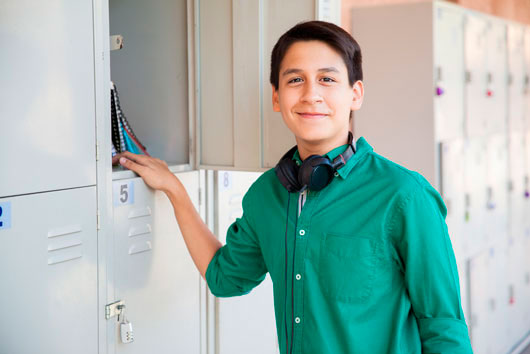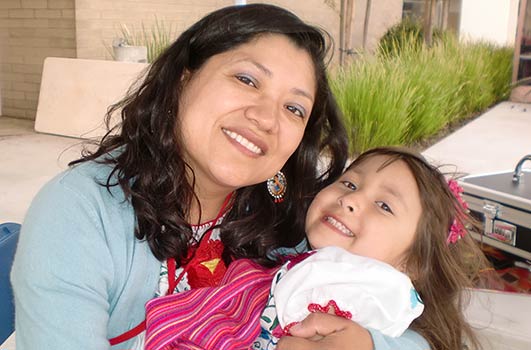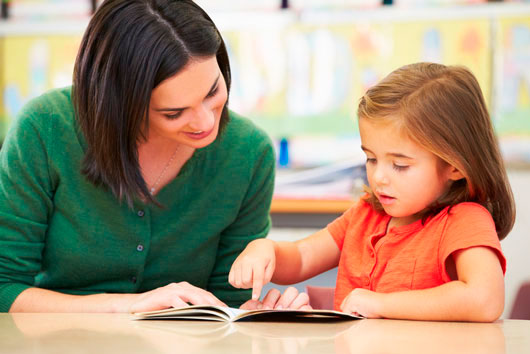
You’ve seen it before: the midriff of a 13-year-old girl who is also wearing shorts so short they are more like a bikini bottom. And you’ve heard the stories of teens getting drunk during unsupervised house parties or worse, getting high on drugs; sexting, grinding, smoking, in short, mischief-seeking. Let’s face it, in today’s world one of the greatest challenges we face is editing the quality of information to which our children are exposed. They are flooded daily with a wild onslaught of social data—and given the prevalence of technology in our daily lives, this can all start when they are very young. This state of constant stimulation inevitably leads to a certain degree of temptation—after all, everyone (especially developing children) wants to be “cool,” not just on Facebook but in reality.
Read Related: 5 Threats Your Teen Faces
So how can we prepare our kids to face and overcome the challenges of peer pressure? Especially when this overpowering force shows up in so many ways. From alcohol, drugs and cigarettes to fashion brands, quantity and not quality of “friends” and likes on social media networks, peer pressure is rampant, pushing children into moral corners that they are often too young to even comprehend. With that in mind, as parents, it is our job to arm our kids with as much self-empowerment as possible, so that they are ethically, personally and genuinely prepared to stare down the temptations that they might otherwise think are going to make them “cool.”
We checked in with Miami-based elementary school principal and mother of three, Monica Wagenberg, EdD, for tips on how to make sure your kids are pressure proof.
“Character education is the best way to prevent kids from falling under the influence of their peers,” says Wagenberg. “Character education would include finding the areas of individual strengths of each child (and celebrating/fostering these areas), allowing children to partake in community service projects from a young age, and teaching them about the importance of diversity, tolerance, and acceptance.”
Read Related: Protect Your Kid From Cyberbulllying
 PRESSURE PROOFING KIDS AGES 5-8
PRESSURE PROOFING KIDS AGES 5-8
- Giving children simple chores at this age will teach them about responsibility. Chores appropriate for a five-year-old may be to put his/her dirty clothes in the hamper or place his/her dishes in the sink. An eight-year-old may be able to actually rinse the dishes and take out the trash.
- Teaching children to respect themselves (through character education) is key. Some forms of bullying may begin at around the age of 7, so you may also give your child strategies or “one-liners” if they are being bullied, such as: Whatever… / What did you just say? / I don’t have time for this… are a few examples that may get your child off the hook in an uncomfortable situation. Letting them know to simply stand by an individual who may be getting bullied can make a world of difference.
- Being inclusive. If your child is having a party, invite either a handful (less than 10) of close friends, or the entire grade (for same sex parties, the rule of 5 close friends or all kids in the grade of that gender applies). Nothing in between, don’t give your child the option…lead by example.
 PRESSURE PROOFING KIDS AGES 9-12
PRESSURE PROOFING KIDS AGES 9-12
Children this age may begin to want to “compete” and become very brand name conscious. Although we would all like to say that this is ridiculous, the truth is that we should teach our kids that hard work allows for certain luxuries in life…and to different degrees, we all seek some sort of luxury.
- Consider an allowance. As the chores in the earlier years become more sophisticated, you may want to consider giving them an allowance. This instills a sense of duty, responsibility, and work ethic. It gives parents some lee-way for the times when the child asks for something that is more expensive than what you may be willing to spend. Teach your child to save the money they earn in allowance so they can pay the difference (if you are willing to spend $30 on a pair of jeans, and the jeans he wants cost $70, she can pay the additional $40 from her earnings). The lessons from this are endless, but the main idea is to cultivate the “hard work = payoff” schema into their minds, so that if and when they do express desire for material objects, they understand the correct path to their acquisition.
- Teach by example. Always discuss why you purchase the things you do. For instance, we needed a bigger car because we just had a baby. We chose leather seats, even if they are more expensive, because they are easier to clean…and the difference in price was within our budget. Explain that the other cars you saw may have been nicer, but they were either too expensive or didn’t make sense for your family for x and y reasons. Kids this age can easily understand the logic if explained step-by-step. This method will teach them about priorities and the purpose for individual purchases or decisions.
- Keep your child active. Peer-pressure begins to really interrupt their lives at this age, and popularity starts to become very important. Have your child participate in team sports, the arts, volunteering, religious groups, and other organized activities in which social groups are structured, purposeful, and have set times. This will help your child develop a sense of belonging with others who share a common interest. Make sure that life for your child does not begin and end with school, since social interaction at schools often comes with minimal supervision and usually only during lunch or recess. Popularity is about perspective. Give your child a chance to be popular for his or her own talents in their own place…school is not a place where all kids can shine. So help them identify a place in which they can.
 PRESSURE PROOFING KIDS AGES 13-15
PRESSURE PROOFING KIDS AGES 13-15
Slowly, children will begin to look inside to find self-acceptance and compare less with others to find personal worth. In the meantime, apply all of the tips listed above, of course, stepping them up a notch to meet the demands of age and maturity (increasing chores and allowance, etc). At this age, puberty is in full-force and most peer pressure will be about sexuality.
- Help build confidence. Make sure that your child is aware of the physical changes he or she can expect. Explain about sex and, of course, safety. Girls are specifically fragile during this time. Help them feel beautiful and valued.
- Give your child reasons to trust you. Allow his/her friends to come hang out at your house (no matter how annoying or smelly they are). Let your child feel comfortable being at home, however, also ensure that there is adequate privacy for a teenage social life.
Be aware that the social demands placed on children at this age are extreme, and we should not minimize their importance even if, as adults, we think they are meaningless. For kids this age it IS terrible to wake up with a zit and not having a phone CAN mean social suicide. Take their issues seriously, because ultimately, it is your child’s truth. The way we guide them through it will shape their problem-solving skills and ability to cope for years to come.










